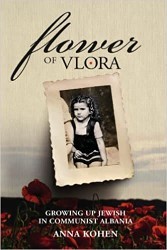Between WWI and WWII, a group of communist aligned poets used the Yiddish language and Jewish history as a springboard to advocate for other marginalized groups worldwide. They travelled from New York to Ukraine, China, Palestine, and Scottsboro, volunteering their poetic voices, even when faced with antisemitism from the groups they wished to aid. Because they wrote in Yiddish, however, very few expected that anyone outside the Jewish community would ever read their work.
In Songs in Dark Times, Amelia Glaser recounts the history of these poets, their causes, and their clashes with one another. The last seventeen pages of the book include an appendix of translated poems, some by Yiddish poets whose names will be familiar even to casual readers of Yiddish poetry, like H. Leivick and Peretz Markish, and others by names that are lesser known, like Esther Shumiatcher.
The greatest value of this book, however, lies not in the translations, but in the attention Glaser pays to her remarkably timely central question: “Can an individual support a Jewish community while simultaneously supporting the left-wing networks that have undermined Jewish cultural practices and, in some cases, taken Jewish lives?”
Some of the poetry she cites in an attempt to answer this question is shocking, including the work of Moyshe Teyf — a poet who remained in Hebron after the 1929 Arab riots split party-aligned Yiddish poets, driving many of them away — and Peretz Markish, who wrote passionately about the Spanish Civil War, likening it to the Inquisition.
The Jewish support for the causes chronicled in Songs in Dark Times is complex and multi-faceted; ranging from true belief in the struggles of marginalized groups and in the principle of internationalism, to cultural self-preservation. The Spanish Civil War, for example, was seen as a critical first fight against fascism, and an entry point for American Jews to both recognize the privilege of being light-skinned, and acknowledge how American racism extended to neglect for Jews vulnerable to Naziism abroad.
With the earthquake of the Holocaust, however, and the murder and suppression of Jewish voices in the Soviet Union, the focus of many of even the most ardent leftist Yiddish poets, like Moshe Nadir, would eventually turn inward, back to Jewish culture. Songs in Dark Times is essential reading for anyone seeking to understand that inward shift, and the relationship between Jewish culture and leftism today.
Maia Evrona is a poet, prose writer and translator of Yiddish literature. She has received fellowships from the Fulbright Scholar Program and the National Endowment for the Arts.





